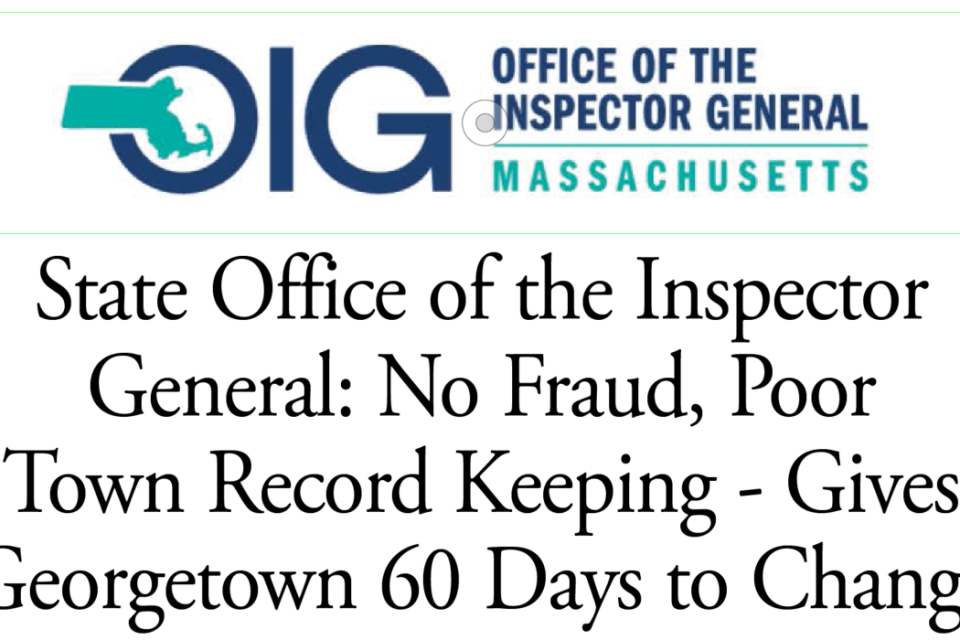GEORGETOWN – The state Office of the Inspector General (OIG) ordered the town of Georgetown last week to implement better controls on how employees report of their time worked, particularly when an employee is out of town hall.
But Inspector General Jeffrey S. Shapiro wrote in a letter to town officials it could not uphold an allegation, made by town officials in April 2023, that the former town conservation agent had committed fraud when he left his office during the afternoons to check on wetland and waterway properties.
The OIG recommended that the town “Establish a timekeeping system to track the work hours and activities of town employees. This system should include detailed record requirements for out-of-office work, including dates, times, and locations.”
Shapiro recommended that the town administrator supervise all employees’ timesheets, not the volunteer board members who are not regularly in town hall.
It also recommended that the town maintain better records on the mileage for trips charged by employees for using personal vehicles when doing town work.
Those recommendations, which the OIG gave the town 60 days to implement, would cover all employees, not just the conservation agent.
The accusation of payroll fraud has been mentioned at SelectBoard meetings in the past, and the board in closed session hired the Stirm Group, a private detective firm, to investigate the allegation No report from the private detectives has been made public.
Former Conservation Agent Steven Przyjemski, who worked for the town for 17 years, resigned in January of 2023, claiming Pacheco had created a “toxic environment” for him at town hall. Following a shouting match between the two town employees in town hall, Przyjemski filed a police report about Pacheco.
Michelle Grenier, who has her own conflict with the town administrator over her salary, replaced Przyjemski as the conservation agent last year.
Przyjemski and commission members, who supervised his work, said he left his office at town hall to see properties that were the subject of the conservation commission’s regulations. The conservation commission oversees encroachment of the town’s waterways and wetlands.
In a letter to the Selectboard, the Conservation Commission chairs, and the town administrator, the OIG wrote, “neither the town nor the Commission maintained adequate records of the former agent’s out-of-office working hours. The insufficient recordkeeping impeded the OIG’s ability to determine whether the former conservation agent performed out-of-office work in the afternoon or committed payroll fraud by leaving work early.”
The OIG also found that the town administrator appears to be the designated supervisor of the conservation agent position, but in practice the volunteer commission chair supervised the former agent.
“The town did not address this ambiguity by clearly delineating the position with direct supervisory responsibility over the conservation agent, creating confusion and a lack of accountability on the part of the town administrator and the Commission chair,” the OIG letter stated.
The solution, according to the OIG, is “establishing an accurate timekeeping system, implementing internal controls, and adopting improved policies for personal vehicle use will provide transparency and increase the public’s confidence in its town government.” ♦




